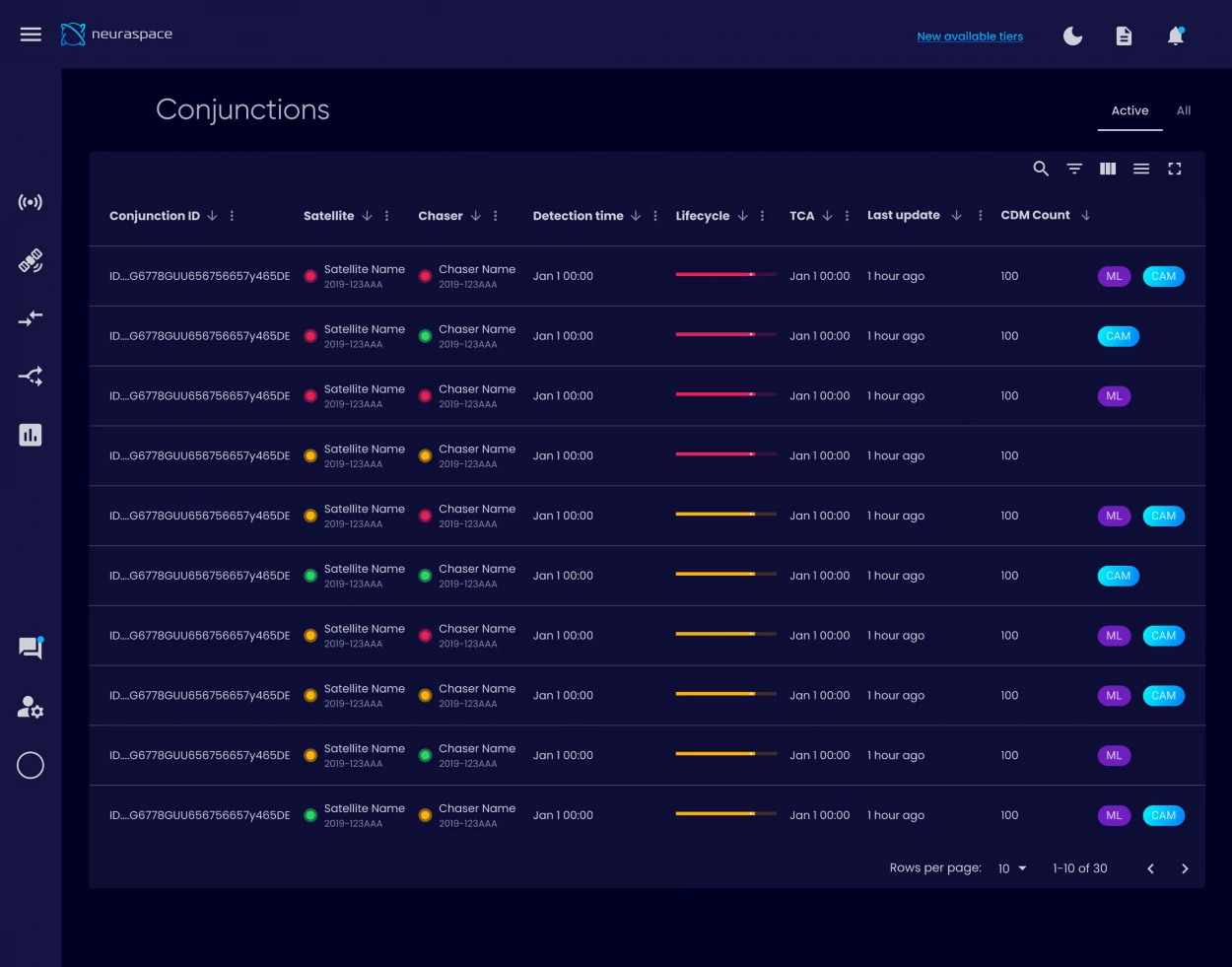Scientists develop database and advanced visualisation models to prevent space collisions
The project involves developing tools that enable satellite operators to predict and avoid collisions through optimised solutions using next-generation Artificial Intelligence (AI) and Machine Learning (ML) models.
A team of researchers from the Faculty of Science and Technology of the University of Coimbra (FCTUC) is developing a database and advanced visualisation models to prevent space collisions.
The Neuraspace - AI FIGHTS SPACE DEBRIS project, led by Neuraspace and funded by the Recovery and Resilience Plan (PRR), involves developing tools that allow satellite operators to predict and avoid collisions through optimised solutions using next-generation artificial intelligence (AI) and machine learning (ML) models. "These tools not only reduce false alerts and unnecessary manoeuvres, saving around €25,000 per manoeuvre, but also increase efficiency, extend satellite lifespan and enable quicker and safer informed decisions. This advancement is crucial in a rapidly expanding sector that requires advanced technological solutions to ensure the safety and sustainability of space operations," explains Nuno Lourenço, a lecturer at the Department of Computer Engineering (DEI) of FCTUC and a researcher at the Centre for Informatics and Systems of the University of Coimbra (CISUC).
The platform developed by Neuraspace will integrate these tools into an autonomous product accessible to satellite operators and institutions such as ESA or NASA, helping to reduce the risk of space collisions. The increased precision of AI-controlled manoeuvres, fuel savings and the creation of a more sustainable space environment are some of the platforms's advantages.
"FCTUC plays an important role in this project by developing the database needed to store and process large amounts of information. This infrastructure will be essential to provide Neuraspace users with real-time data that will allow them to make quick and informed decisions," explains the UC project coordinator.
Additionally, Nuno Lourenço continues, "FCTUC is creating advanced visualisation models to present multidimensional information intuitively. This ensures operators can interpret data efficiently and make critical decisions within seconds."
The results are already tangible. Neuraspace is testing the data visualisation service, which includes the models developed by the FCTUC team. The data collection and processing system is also being finalised, with studies being carried out to select the best suppliers.
"As the number of satellites in orbit grows exponentially, the risk of collision increases, making this type of solution essential. Just like on the road, collisions in space can cause significant damage to satellites and affect the sustainability of space operations. Neuraspace - AI FIGHTS SPACE DEBRIS' is therefore an innovative and vital response to the challenges of the future of space," concludes Nuno Lourenço.

